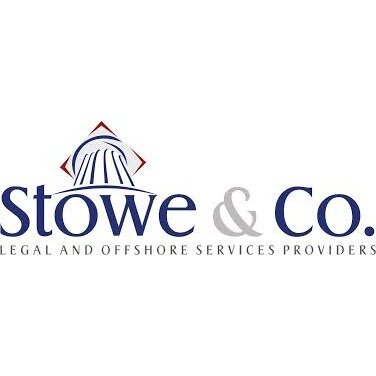Best Energy, Environment & ESG Lawyers in Dominica
Share your needs with us, get contacted by law firms.
Free. Takes 2 min.
Or refine your search by selecting a city:
List of the best lawyers in Dominica
About Energy, Environment & ESG Law in Dominica
Energy, Environment, and Environmental, Social, and Governance (ESG) law in Dominica comprises a collection of legal frameworks aimed at preserving the country's natural resources, supporting sustainable economic development, and ensuring responsible business practices. As a nation known for its rich biodiversity and commitment to climate resilience, Dominica has developed laws and regulations to manage energy use, protect the environment, and encourage organizations to adhere to ESG standards. Government efforts strongly emphasize renewable energy, disaster resilience, conservation, and maintaining a balance between economic growth and environmental stewardship.
Why You May Need a Lawyer
Legal assistance in Energy, Environment, and ESG matters is important for a variety of reasons. Individuals, businesses, and organizations often seek lawyers when:
- Starting or expanding an energy project, such as solar, wind, or geothermal installations
- Applying for permits or licenses for environmental activities or developments
- Addressing allegations of environmental harm or regulatory violations
- Complying with complex environmental, health, and safety regulations
- Engaging in land use, property development, or infrastructure projects in protected or sensitive areas
- Responding to climate change adaptation and disaster risk reduction requirements
- Incorporating ESG criteria into business operations, investment decisions, or reporting
- Resolving disputes involving environmental damage, pollution, or resource use
- Navigating international environmental or investment treaties impacting local business
- Accessing government incentives for green or sustainable projects
Local Laws Overview
Dominica's legal landscape for energy and environmental matters is shaped by its commitment to sustainability and disaster resilience. Key laws and regulations include:
- Environmental Protection and Management Act: This act provides the overall framework for environmental protection, pollution control, and natural resource management. It governs environmental impact assessments (EIAs), conservation efforts, and regulation of waste management.
- Geothermal Energy Development: Dominica encourages renewable energy development, particularly geothermal energy, through dedicated policies and licensing requirements. The government actively supports projects that reduce reliance on imported fossil fuels.
- Forestry and Wildlife Laws: Dominica protects its forests, national parks, and wildlife through specific acts that control land use, logging, hunting, and conservation areas.
- Building Codes and Disaster Resilience: Construction, development, and infrastructure projects must adhere to building standards tailored to hurricane and seismic risks, reflecting the country's vulnerability to natural disasters.
- Water Quality and Coastal Management: Regulations exist to protect water sources, coastal zones, and marine life, with special provisions for pollution control and sustainable use of natural resources.
- ESG and Corporate Responsibility: While Dominica does not mandate comprehensive ESG reporting, businesses are expected to comply with relevant environmental, social, and governance standards in accordance with international agreements and good practice guidelines.
Frequently Asked Questions
What is an Environmental Impact Assessment (EIA) and when is it required?
An Environmental Impact Assessment is a study conducted to predict the environmental effects of a proposed project or development. In Dominica, EIAs are typically required for large construction projects, energy developments, or activities likely to have significant impacts on the environment.
What permits are needed to start a renewable energy project?
Permits and licenses are required from the relevant government authorities to initiate any renewable energy project, such as hydropower, solar, or geothermal. The process includes complying with technical, safety, and environmental criteria.
What are the penalties for environmental violations?
Penalties for breaches of environmental laws may include fines, orders to remediate damage, suspension of business operations, and in some cases, criminal prosecution. The severity depends on the violation and harm caused.
Can landowners use their land for any purpose?
No. Land use is regulated by zoning laws, environmental protections, and planning requirements, especially in sensitive or protected areas. Permits and approvals are required for certain activities or developments.
What is considered pollution under Dominica law?
Pollution includes the introduction of substances or energy (such as chemicals, noise, or waste) into the environment that cause harm to human health, ecosystems, or property. Activities that result in pollution are regulated and may require mitigation measures.
How does Dominica support businesses adopting ESG practices?
The government provides guidance, technical support, and sometimes incentives for businesses adopting sustainable practices. International funding and partnerships also encourage compliance with ESG standards.
Do international companies operating in Dominica have to follow local environmental laws?
Yes. All companies, whether local or foreign, must comply with Dominica's environmental legislation and regulations.
Are there tax incentives for green energy or sustainable projects?
Dominica periodically offers tax incentives, duty exemptions, or other benefits for eligible projects in renewable energy, eco-tourism, or environmentally friendly developments. The availability of incentives should be confirmed with relevant authorities.
What should I do if my business is accused of environmental harm?
Contact a qualified lawyer immediately. It is important to preserve evidence, cooperate with authorities, and seek legal advice before making public statements or remedial actions.
How can communities participate in environmental decision-making?
Communities can engage through public consultations, provide input during permit applications, and collaborate with local authorities on conservation or development matters.
Additional Resources
People seeking information or legal support in Energy, Environment, and ESG law in Dominica should consider the following resources:
- Ministry of Environment, Rural Modernisation, Kalinago Upliftment and Constituency Empowerment
- Division of Forestry, Wildlife and Parks
- Environmental Coordinating Unit (ECU) of Dominica
- Dominica Geothermal Development Company
- Dominica Bureau of Standards
- Dominica Electricity Services Ltd (DOMLEC)
- Bar Association of the Commonwealth of Dominica
- Caribbean Community (CARICOM) Environmental and Sustainable Development Initiatives
- Non-governmental organizations focused on conservation, disaster response, and renewable energy
Next Steps
If you are considering legal action or need assistance with an energy, environment, or ESG issue in Dominica, start by gathering all related documentation and details of your situation. Identify the relevant government agency or regulatory body for your matter. Consult a lawyer experienced in environmental and energy law to review your rights, responsibilities, and the best legal course of action. Many lawyers offer an initial consultation to discuss your needs and possible strategies. Timely action can help ensure compliance, resolve disputes, or prevent costly legal consequences.
Lawzana helps you find the best lawyers and law firms in Dominica through a curated and pre-screened list of qualified legal professionals. Our platform offers rankings and detailed profiles of attorneys and law firms, allowing you to compare based on practice areas, including Energy, Environment & ESG, experience, and client feedback.
Each profile includes a description of the firm's areas of practice, client reviews, team members and partners, year of establishment, spoken languages, office locations, contact information, social media presence, and any published articles or resources. Most firms on our platform speak English and are experienced in both local and international legal matters.
Get a quote from top-rated law firms in Dominica — quickly, securely, and without unnecessary hassle.
Disclaimer:
The information provided on this page is for general informational purposes only and does not constitute legal advice. While we strive to ensure the accuracy and relevance of the content, legal information may change over time, and interpretations of the law can vary. You should always consult with a qualified legal professional for advice specific to your situation.
We disclaim all liability for actions taken or not taken based on the content of this page. If you believe any information is incorrect or outdated, please contact us, and we will review and update it where appropriate.
Browse energy, environment & esg law firms by service in Dominica
Dominica Attorneys in related practice areas.
Browse energy, environment & esg law firms by city in Dominica
Refine your search by selecting a city.











